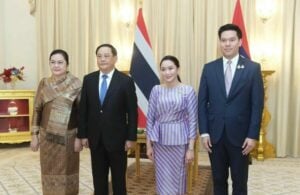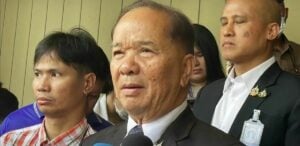Navigating the differences between Thai and Western work cultures
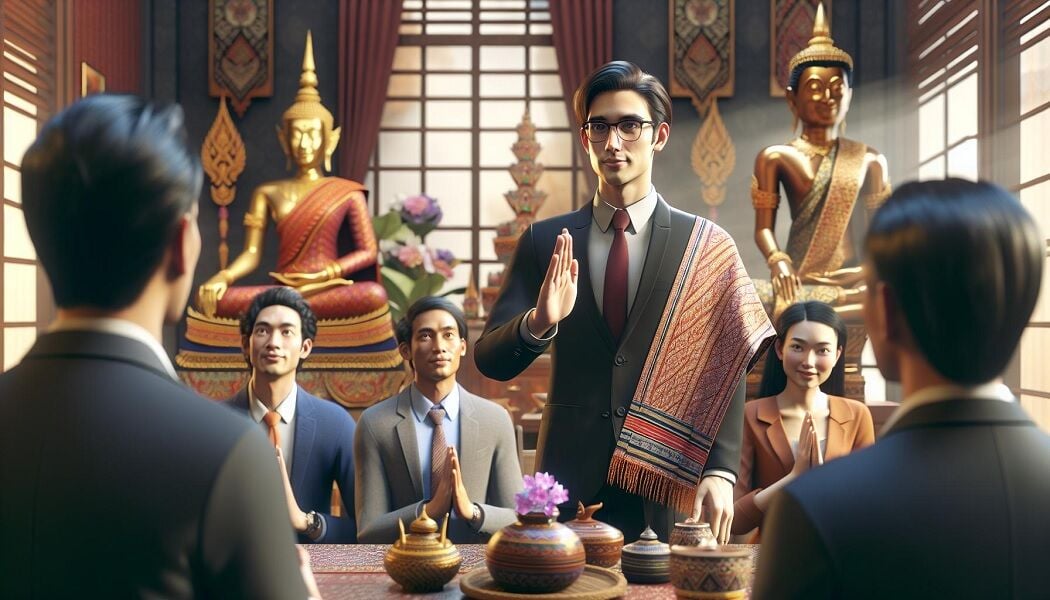
Exploring the core of global diversity prompts one to consider the distinct disparities between Thai and Western work cultures. This examination is not merely an insight into workplace practices but also a deep dive into the essence of cultural identity and its significant influence on daily life. For individuals intrigued by the subtleties of international work environments or contemplating a transnational career shift, grasping these variances is essential.
Thai work culture is distinguished by its warmth, adaptability, and focus on harmony. Contrary to the rapid, deadline-oriented nature dominant in numerous Western workplaces, Thais adopt a more leisurely approach to professional life, placing higher value on relationships and well-being rather than absolute productivity. This fundamental divergence in perspectives towards labour and time management can serve as an enlightening experience for Western professionals.
Moreover, the approach to mealtimes, conflict resolution, and social interactions in Thailand offers a window into a work culture that champions community and collectivism. As you navigate through this article, you’ll gain insights into how these cultural distinctions shape professional environments, influencing everything from daily schedules to overarching business strategies.
Key concepts in Thai and western work cultures
Cultural dimensions and work values
In exploring the difference between Thai and Western work cultures, one must appreciate the distinct cultural dimensions and work values that underpin each environment. Western cultures prioritise efficiency, productivity, and individual achievement. Employees in Europe and North America are accustomed to working long hours, embodying competitiveness, and aiming for professional success. This approach underscores a more individualistic work culture, where independence in achieving targets is encouraged.
Conversely, Thai work culture embodies a contrasting set of values, focusing on warmth, flexibility, and harmony. It’s marked by a collective ethos that prioritizes relationships and well-being over outright productivity. In Thailand, avoiding confrontation and maintaining social harmony are crucial. Direct warnings about mistakes are rare, as there’s a desire not to hurt someone’s feelings. Competition is not as pronounced; instead, doing one’s best within a cooperative framework is the norm.
Hierarchy and authority dynamics
Hierarchy and authority dynamics further illustrate the difference between Thai and Western work cultures. In Western workplaces, structures are often hierarchical, with clear lines of authority and decision-making power. This structure supports the emphasis on individual achievement and direct communication, allowing for a streamlined approach to problem-solving and task execution.
In contrast, Thai culture places a higher value on respect for authority and seniority but within a less overtly hierarchical context. Decision-making might involve more consensus among team members, reflecting the importance of social harmony and the collective over the individual. This approach can sometimes lead to slower decision-making processes but ensures that group cohesion and respect for all voices are maintained. Respectful interactions, especially with those in higher positions, are fundamental, with an emphasis on polite speech and deference.
Communication styles in the workplace

Indirect communication in Thai culture
In Thai work culture, communication tends to be indirect and nuanced. This approach is rooted in a desire to maintain social harmony and avoid confrontation. When expressing disagreement or offering feedback, Thai colleagues might opt for a more tactful or less direct method. This indirectness helps preserve respect and group cohesion, ensuring no one loses face during interactions. It’s a reflection of the emphasis on relationships and community prevalent in Thai society. Understanding this subtlety is key if you’re navigating the Thai workplace, as what isn’t said is often just as important as what is.
Directness in Western cultures
Contrastingly, Western work cultures value directness and clarity in communication. In environments across Europe and North America, being straightforward is associated with honesty and efficiency. Employees are encouraged to speak their minds and share ideas openly, which is seen as a way to foster innovation and resolve issues quickly. This practice stems from a cultural appreciation for individualism and a hierarchical workplace structure, where clear, direct feedback can drive personal and professional growth. Recognizing this cultural norm can help you adapt your communication style in Western settings, ensuring your input is both heard and respected.
Work-life balance and social expectations
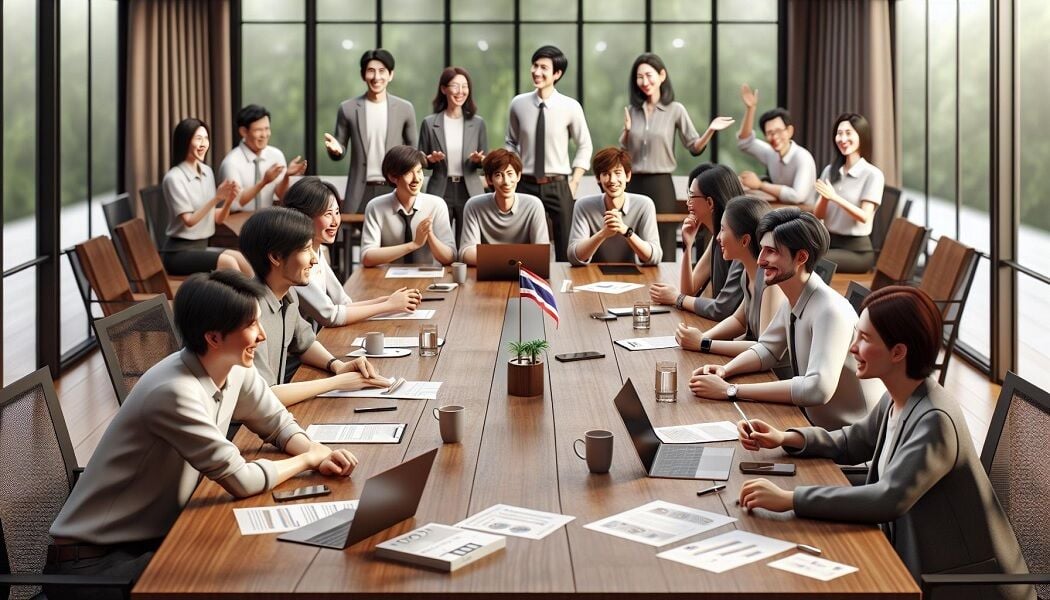
The role of family and social obligations
In the Thai work culture, family and social obligations often play a significant role, reflecting a sharp contrast to Western work environments. Thai culture values time spent with family and participation in social events, making these aspects an integral part of one’s life, including work. Unlike in many Western cultures, where a clear demarcation between professional and personal life exists, in Thailand, it’s common for work and personal life to blend. This includes attending important events of colleagues and superiors, which might feel like an extension of work obligations but are viewed in Thailand as building relationships and social harmony.
Work hours and holiday entitlements
Regarding work hours and holiday entitlements, Thai companies typically follow the national regulations set by the Thai Ministry of Labor, capping the workweek at 40-48 hours with a one-hour break after five consecutive hours of work. Employees enjoy at least one day off per week, ensuring at least one rest day every seven days. In comparison, Western organisations might offer more flexible working hours and are increasingly adopting remote work models, which can offer more personal time but less direct interpersonal connections.
Navigating the business world
In understanding the difference between Thai and Western work cultures, navigating the business world requires an appreciation of unique cultural nuances and workplace values. Each culture brings distinct approaches to business interactions, decision-making, and day-to-day operations.
The significance of ‘face’ in Thai business
In Thai culture, maintaining ‘face’ or protecting one’s public image and reputation is paramount. This concept influences how individuals communicate, resolve conflicts, and conduct business dealings. Preserving harmony within the workplace is prioritized, often leading to indirect communication and non-confrontational approaches. This means, in Thai business settings, diplomacy and subtlety in communication are key. Direct criticism or blunt feedback is avoided as it can cause embarrassment and harm relationships. Instead, messages are conveyed in a manner that preserves the dignity of all parties involved. Understanding this cultural aspect is crucial for fostering productive working relationships in Thailand.
The emphasis on results in Western businesses
Conversely, Western business cultures place a strong emphasis on results and achievements. Work environments are competitive, and individual performance is highlighted. This drive for success fosters a culture of direct communication where feedback, whether positive or negative, is given openly and straightforwardly. The focus is on identifying problems, offering solutions, and achieving goals efficiently. Clear, direct communication aids in minimizing misunderstandings and propels projects forward. In such settings, being upfront about challenges and accomplishments is appreciated as it contributes to the overall productivity and innovation of the team.
Adaptation and cultural sensitivity
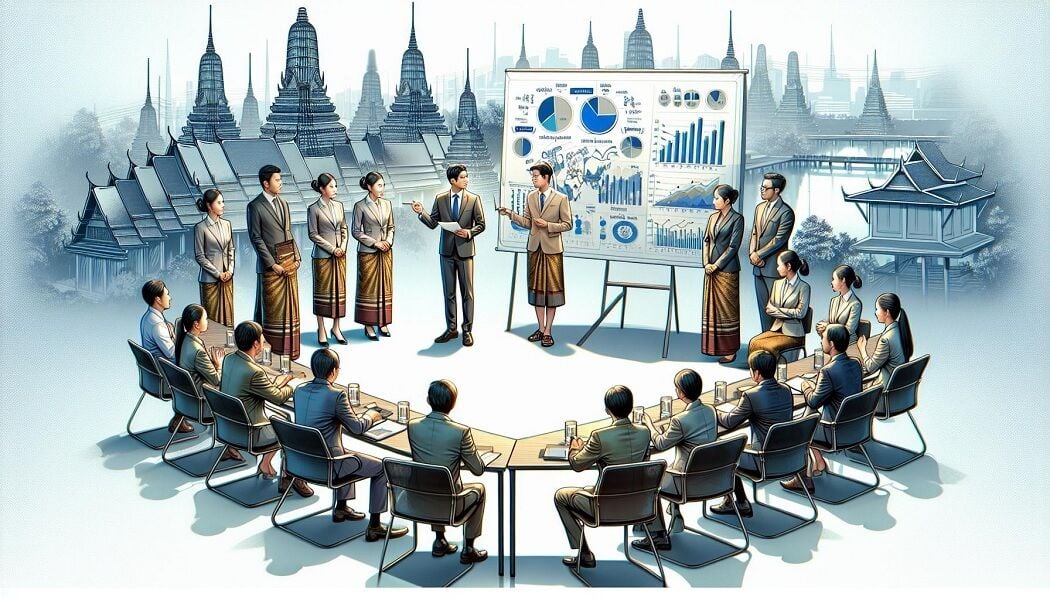
Getting the hang of the differences between Thai and Western work cultures is key to creating a workplace where everyone gets along and thrives. This bit offers some handy tips and insights for Western folks working in Thailand, as well as Thai professionals teaming up with their Western mates. By embracing cultural sensitivity, navigating the professional world becomes a whole lot smoother.
Tips for Westerners working in Thailand
Respect hierarchical relationships. In Thai culture, seniority plays a crucial role in the workplace. It’s essential to show reverence towards superiors and those older than you. Always wait for a superior to initiate a handshake and remember that polite speech and gestures are highly valued.
Practice patience and humility. The Thai work culture values smooth interpersonal relations and harmony. You might find decision-making processes slower than what you’re accustomed to. Instead of pushing for quick resolutions, show respect for the collective decision-making process.
Avoid public criticism. Maintaining face is a significant aspect of Thai culture. Offering feedback directly, especially in front of others, can cause embarrassment and strain relationships. Opt for private, gentle feedback instead.
Embrace indirect communication. Thais often use non-verbal cues and indirect language to convey messages. Pay attention to body language, tone of voice, and subtle hints to fully understand communication in the workplace.
Considerations for Thais working with Western colleagues

Appreciate direct communication. Western cultures value clear and straightforward dialogue. Understand that when your Western colleagues offer direct feedback, it’s aimed at improving work outcomes and isn’t personal.
Understand the emphasis on punctuality. In many Western cultures, being on time signifies respect and professionalism. Strive to arrive on time for meetings and deliver work within agreed deadlines.
Recognise the value of individual achievement. Western workplaces often celebrate personal accomplishments and initiative. Don’t hesitate to share your ideas and contributions during meetings; it’s appreciated and expected.
Prepare for a competitive environment. Unlike the collaborative and harmony-focused approach in Thailand, Western cultures may seem more individualistic and competitive. Recognise this as a drive for excellence rather than personal rivalry.
Acknowledge the less hierarchical structure. In many Western companies, the hierarchy is less pronounced, and employees feel comfortable sharing opinions with management. Feel encouraged to speak up and contribute your insights and suggestions.
Leveraging AI for smarter money management transforms financial habits by providing personalized advice, automating savings, optimizing budgets, and predicting future expenses. This technology helps track spending patterns, offers investment recommendations, and enhances decision-making, making it an indispensable tool for achieving financial goals efficiently and effectively.




